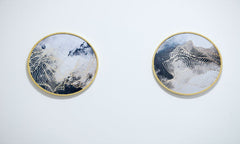
Relationship between hot flashes and hot flashes and menopause | Countermeasures and improvement methods
Do you feel hot flashes or hot flashes in your body? Changes in female hormones during menopause may play a role.
There are individual differences in how menopausal hot flashes and hot flashes are felt and how severe the symptoms are. Also, the timing of hot flashes and hot flashes varies from person to person. Some people have hot flashes and hot flashes during the day, some people feel a slight fever in the middle of the night and their eyes cool down, and some people have a fever and can't sleep well.
In this article, we will explain the causes of hot flashes and hot flashes during menopause.
We will also introduce countermeasures and improvement methods when hot flashes and hot flashes appear, so please try to incorporate them.
Find out in this article
- What is menopausal hot flashes?
- What to do when hot flashes occur
- How to improve hot flashes due to menopause
[I can understand you in just 3 minutes]
Click here for a free medical interview supervised by a doctor that can be done on LINE
What is menopausal hot flashes?

Explain the causes and symptoms of hot flashes in menopause. Menopausal hot flashes, also known as hot flashes, are familiar to most people.
We will also explain symptoms other than hot flashes and hot flashes, and how long menopausal symptoms will last, so please refer to them.
Causes of menopausal hot flashes
The exact cause of menopausal hot flashes is not known. However, supplementing female hormones improves the symptoms of hot flashes and hot flashes, so it is clear that a decrease in female hormones is involved.
However, in the case of amenorrhea, which occurs in young people even with the same decrease in female hormones, hot flashes and hot flashes are generally not seen. Therefore, hot flashes and hot flashes that occur during menopause are thought to be related to a secondary instability of the autonomic nervous system in addition to a decrease in female hormones.
Other Symptoms of Menopause
In menopause, in addition to hot flashes and hot flashes, various symptoms appear depending on the person, such as sweating, chills, palpitations, and headaches.
The sweating may be just a little drizzly, or it may be dribbling. One of the characteristics of menopausal sweat is that it tends to occur in the neck and head, where sweat is less likely to occur.
The sweat usually subsides in a few minutes, but after that, the body suddenly cools down, and you may feel a tingling sensation. Sometimes it happens once a day, sometimes it happens frequently, such as several times an hour. In severe cases, you may need to change your nightclothes many times during the night.
Also read the following articles
How to deal with menopausal headaches
How long do menopausal hot flashes last?
Menopausal hot flashes usually last for 1 to 2 years, 2 to 3 years at most.
Perimenopause is the 10-year period that includes the five years before menopause and the five years after menopause. The average age at which menopause occurs is about 50, so many women reach menopause in their late 40s to early 50s.
Even during the 10 years of menopause, there are individual differences in how female hormones change, so it can be said that there are individual differences in the duration of symptoms. In rare cases, hot flashes continue for about 10 years after menopause, but you can consider them to be quite rare.
What to do when hot flashes occur

Here are 4 things to do and how to deal with hot flashes. It's all about how to easily incorporate it in your daily life, such as home and company.
Hot flashes often occur suddenly. Please keep this in mind so that you can respond immediately when hot flashes appear.
move to a cooler place
If you feel hot flashes, move to a cooler place. If you rest quietly in a cool place, the heat that is trapped in your body will easily subside. Even if you have a strong hot flash and can't sleep, it's a good idea to get out of the futon and move to a cooler place.
However, if you are directly exposed to the wind from a fan or air conditioner, you may feel chills as opposed to hot flashes. It would be good if you could devise ways such as lowering the temperature of the entire room or circulating the air so that it is not directly exposed to the wind as much as possible.
Also, it is important to wear clothes that are breathable as much as possible and to improve the ventilation.
Pressing effective points during menopause
One of the effective points for menopause is "Taisho". Taisho is the point where the bones of the big toe and index finger meet.
If you stimulate the taisho, it will calm you down. In addition, since it is a key point related to the regulation of hormone balance, it can be expected to relieve hot flashes during menopause.
When pressing the points, apply pressure slowly with a finger that is easy to push, and stimulate with enough strength to feel a little pain. By doing it every day, you can also notice the state of your body that day, so it is good to do it every day.
Cool your neck with a cool towel
If you feel hot flashes, we recommend cooling your neck with a cool towel. If it is difficult to prepare a towel, wet wipes are fine. If you are prone to hot flashes while sleeping, you may want to put a cooling sheet around your neck while you sleep.
By cooling the nape of the neck, the skin in the chilled area cools down and hot flashes are easily relieved. In other words, by cooling the nape of the neck, the temperature of the body tends to drop and the feeling of hot flashes is easily relieved.
take a relaxed position
When you have a hot flash, it's best to take a relaxed position. In a tense posture, the circulation of the body becomes worse, so it is easier for heat to build up.
Move to a sofa or a comfortable chair and get into a comfortable position. If it's difficult to change places because of desk work, try to do something that doesn't overdo it, such as stretching comfortably.
At that time, it is recommended to perform double breathing. Deep breathing works on the autonomic nervous system, making the parasympathetic nervous system dominant and helping to relieve hot flashes.
How to improve hot flashes due to menopause

I will show you how to improve hot flashes due to menopause.
There are multiple options, including supplements, herbal medicines, and gynecological hormone replacement therapy. I will explain it in an easy-to-understand way, so please try to work on the method that seems to suit you.
Use effective supplements during menopause
It has been reported that intake of eicosapentahydrochloride (EPA) reduces the frequency of hot flashes during menopause1).
The above study was conducted on 120 women between the ages of 40 and 55 who experienced hot flashes, divided into groups who took EPA and those who did not (placebo). The average number of hot flashes at start was 2.8, and the EPA group had an average reduction of 1.58 hot flashes per day. On the other hand, the placebo group showed an average reduction of 0.50, indicating that taking EPA has the effect of reducing the number of hot flashes by about 3 times1).
EPA supplements can be purchased at pharmacies, so it's worth trying.
get a prescription for herbal medicine
Herbal remedies that are effective for menopausal hot flashes are also an option. Kampo medicines are composed of multiple herbal medicines, so if you have other symptoms along with hot flashes, you can expect improvement.
There are many types of herbal medicines that are effective for hot flashes, centering on the representative “three major gynecological prescriptions”. The " three major gynecological prescriptions " are Keishibukuryogan, Kamishoyosan, and Tokishakuyakusan, which can be used according to your constitution.
You will be able to feel the effect by consulting with a gynecologist or a specialist who is familiar with Chinese medicine and taking Chinese medicine that suits your body.
▼ You can consult Kampo on LINE
Click here for a free consultation supervised by a doctor
Also read the following articles
Kampo medicines prescribed for menopause
Treatment with hormone replacement therapy (HRT)
Hormone replacement therapy (HRT) is also effective for hot flashes during menopause. HRT is a treatment that replaces estrogen, which declines during menopause. Estrogen supplementation has been shown to be effective for menopausal symptoms such as hot flashes, sweating, and hot flashes.
In addition to oral drugs, there are patches and ointments available for treatment, which are selected according to lifestyle and severity of symptoms. This medicine is prescribed by a gynecologist and is covered by insurance, so please consult a doctor.
lead a stress-free, regular life
I explained that the causes of menopausal symptoms are the instability of the autonomic nervous system in addition to the decrease in female hormones. A decrease in female hormones is a natural change in the body, but the autonomic nervous system can be controlled by conscious awareness.
A major cause of autonomic nervous system instability is stress. When stressed, the sympathetic nervous system becomes dominant, and the balance between the sympathetic and parasympathetic nervous system collapses.
Menopause can be a stressful time for family and work. However, reducing stress as much as possible is the point of making menopausal symptoms easier.
Also, a regular life is important to trim the autonomic nerves. Let's be conscious in our daily lives, such as going to bed early, waking up early, and eating well-balanced meals.
summary
We introduced the causes and countermeasures for hot flashes and hot flashes that are easy to feel during menopause. While adopting coping methods that can be done immediately on a daily basis, if the symptoms are painful, there are many options such as supplements, hormone replacement therapy at the hospital, and Chinese medicine.
In addition, menopausal symptoms are more likely to occur due to the instability of the autonomic nervous system in addition to the decrease in female hormones. A stress-free life is very important to balance the autonomic nervous system. To ease menopausal hot flashes, start by reducing stress.
[I can understand you in just 3 minutes]
Click here for a free medical interview supervised by a doctor that can be done on LINE
References
1) Lucas, Michel PhD, RD1; Asselin, Geneviève MSc1; Mérette, Chantal PhD2; Poulin, Marie-Josée MD2; Dodin, Sylvie MD, MSc1,3 : Menopause: March 2009 - Volume 16 - Issue 2 - p 357-366 https://journals.lww.com/menopausejournal/toc/2009/16020










